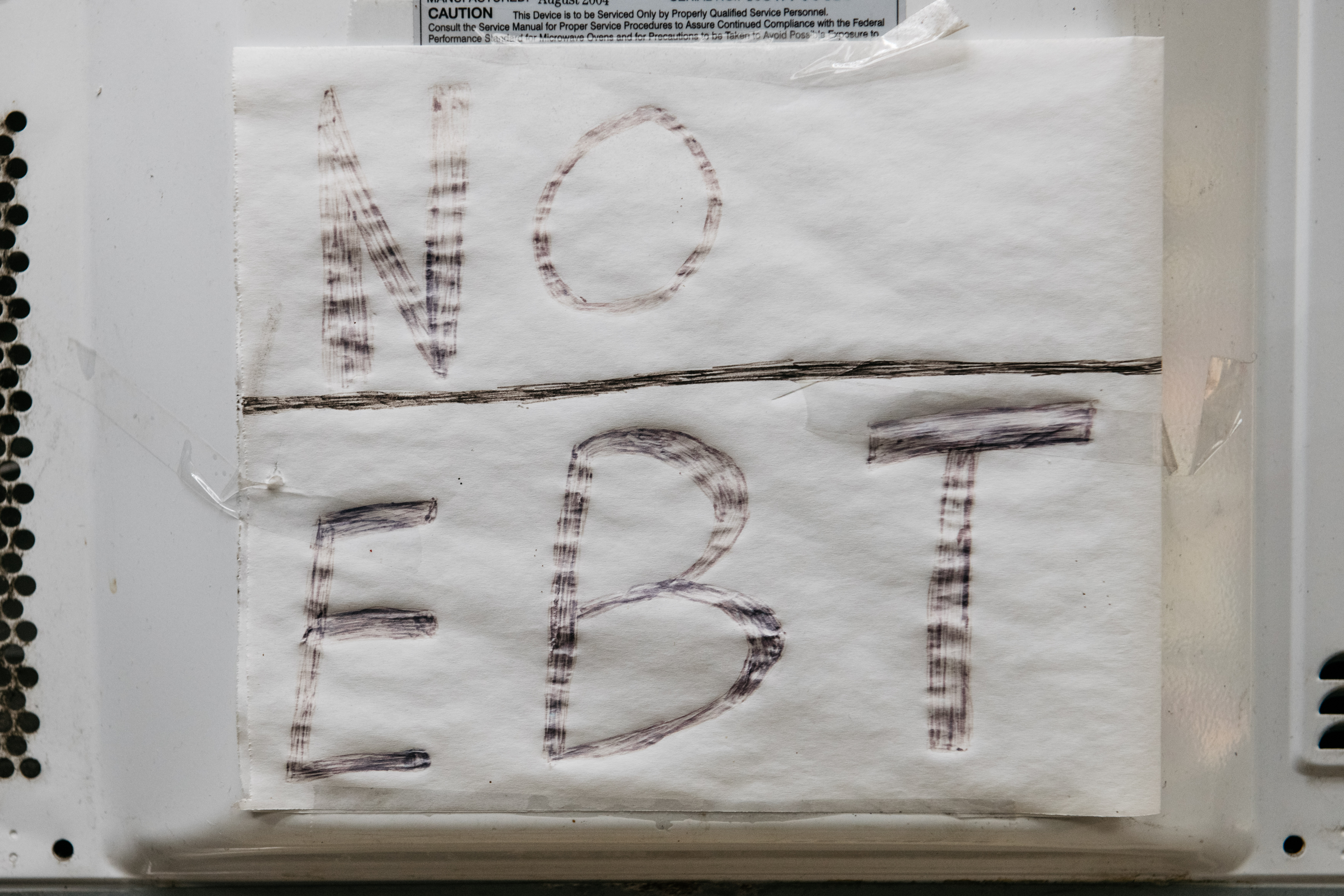Trump Is Still Coming Up With New Ways to Punish the Poor

Credit to Author: Brendan O’Connor| Date: Fri, 06 Dec 2019 19:35:55 +0000
On Wednesday, as the nation was transfixed with the riveting testimony of constitutional scholars in House impeachment hearings, the Trump administration continued its brutal war on the poor, announcing the final version of its plan to kick about 700,000 people off the Supplemental Nutrition Assistance Program (SNAP), commonly known as food stamps, which provide money to poor people to purchase food.
This particular measure targets a category of SNAP recipients known as able-bodied adults without dependents, or ABAWDs—single adults that the administration believes should be working. The idea here is that unemployment numbers are down and jobs are available, so any ABAWD who is still on food stamps is simply taking advantage of the system. The rule finalized on Wednesday introduces a requirement that any ABAWD receiving SNAP benefits must work 20 hours a week or be kicked off the program. As NPR reports:
SNAP statutes already limit adults to three months of benefits in a three-year period unless they meet the 20 hours per week requirement, but many states currently waive that requirement in high unemployment areas. This change would make those waivers harder to get.
This will force hundreds of thousands of people already in a precarious position into even more dire straits—if they can't get a job before the rule change goes into effect in April, they will lose one of their only sources of income. Many of those affected will be people of color, those without college educations, and residents of rural areas. Some could be forced to choose between paying bills and buying food. "SNAP is practically the last vestige of the safety net for the poor in this country," said Marion Nestle, author of several books about the politics of food (including, most recently, Unsavory Truth: How Food Companies Skew the Science of What We Eat). "These moves will make our country even more unequal."
"It's a punitive measure," said Nevin Cohen, research director of CUNY’s Urban Food Policy Institute. "The goal of the administration is to cut SNAP plain and simple… without regard for people who will suffer malnourishment, or whose households will be hurt by the changes."
The rule change is one of three pursued by the Trump administration to cut SNAP benefits. (The other two are still being finalized.) If all three measures had been in place last year, according to the Urban Institute, 3.7 million people would have been kicked off the program. Perhaps the most insidious of these is a proposed rule that would block families from getting food stamps if they already receive other government benefits—a change that would mean nearly a half-million children could no longer receive free meals at school.
Adding insult to injury, Trump administration officials want people to believe that all of this is for their own good. "Americans are generous people who believe it is their responsibility to help their fellow citizens when they encounter a difficult stretch," Secretary of Agriculture and nepotistic millionaire Sonny Perdue told reporters this week. "This is about restoring the original intent of food stamps … moving more able-bodied Americans to self sufficiency." Brandon Lipps, the USDA deputy undersecretary for food nutrition and consumer services, went even further: "The changes reflect the belief that more Americans can enter and reenter the workforce so they can know the dignity of work."
Enrollment in SNAP has declined significantly since 2007-2008, Cohen told VICE, which indicates that people do move off the SNAP rolls when jobs are available. "People don't want to stay on SNAP if they don't need to," Cohen said. If people are enrolled in SNAP—even if, statistically, it appears that work is available—it is because "they're not able to access the jobs that are available in their communities."
"While national unemployment figures are down, in individual communities there may not be access to jobs. Individuals who are out of work and receiving SNAP benefits may not qualify for the jobs that are available, and the jobs that they do qualify for might not be in their communities," Cohen said. "If the available jobs for unskilled people without a lot of work experience are located way across town, and people need to drive a car to get to those jobs, those jobs may be theoretically available, but not practically."
Last year, the administration tried to pass these policy changes into law by including them in the 2018 Farm Bill, which Congress ended up passing without including the cuts to SNAP. When the administration switched its approach, introducing the cuts as agency rule changes earlier this year, a group of 47 senators, both Republicans and Democrats, condemned the move.
"Despite the unwillingness of Congress to destroy SNAP, the Trump administration has done relentless end runs around it—three this year—to cut the program," said Nestle. "Every one of those rule tightenings will result in less participation and budget cuts at the expense of the poor. At the same time, the administration has chosen to put more than $20 billion into supports for large agricultural producers—also in an end run around Congress’s Farm Bill. This administration gets what it wants: more for the rich and less for the poor."
This article originally appeared on VICE US.